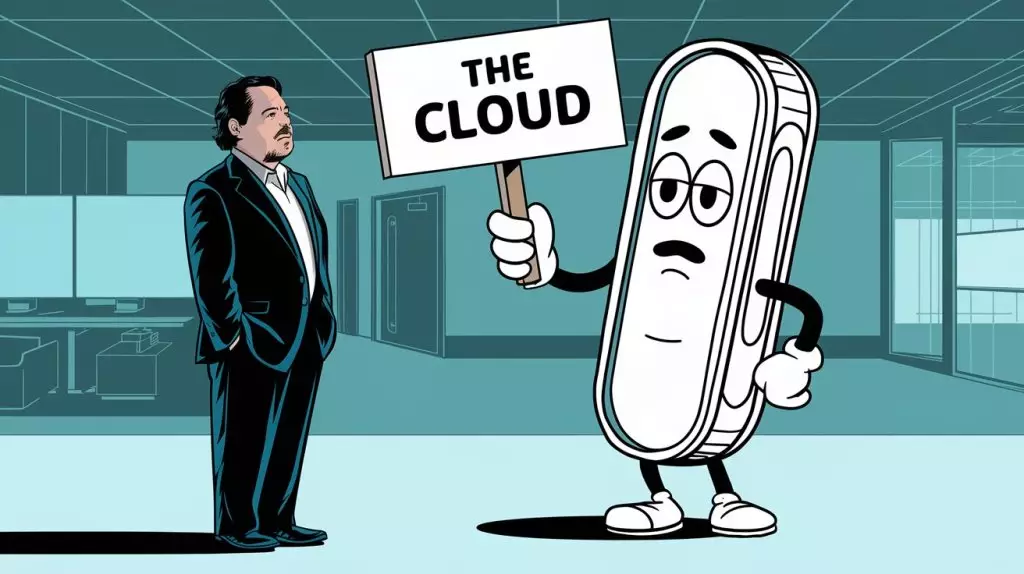In the fast-paced world of technology, where giants like Microsoft and Salesforce consistently compete for market supremacy, disagreements are bound to surface. A notable incident recently came to light when Marc Benioff, co-founder and CEO of Salesforce, openly criticized Microsoft’s AI assistant, Copilot. This statement, delivered through Benioff’s personal X account, suggested that Copilot was “disappointing” and lacked the accuracy expected from modern AI systems. Such bold assertions prompt a deeper examination of the current landscape of AI, its implementations, and the narratives being shaped around it.
Benioff didn’t hold back his opinions, claiming that Copilot resembled Clippy, Microsoft’s infamous virtual assistant from 1996. Clippy was initially seen as an innovative solution designed to assist users navigating Microsoft Office, but it quickly became notorious for its intrusive nature and lack of practical support. This analogy is laden with criticism, suggesting that despite technological advancements, Microsoft’s offerings have not matured as expected. The comparison implies that Copilot, much like Clippy, may fail to meet user needs or expectations in a competitive environment where greater accuracy and functionality are paramount.
Launched in March 2023 and built on OpenAI’s GPT models, Copilot intends to transform the productivity tools available in Microsoft’s Office 365 suite. With features like vision capabilities and humanlike conversational interactions, the service aims to assist users significantly. However, these technological attributes alone do not guarantee success. The crux of Benioff’s critique centers on the practical efficacy of Copilot; despite its shiny new features, the question remains — does it genuinely enhance productivity and user experience?
Interestingly, Benioff’s critique arrives amid his reflections on the broader implications of AI. He has raised concerns about AI being oversold, arguing that it has yet to deliver on high-profile promises such as curing major diseases or addressing environmental crises. This perspective seems to contradict his previous assertions about the excitement generated by Salesforce’s new AI-oriented initiatives, particularly Agentforce, a tool designed to develop enterprise-specific AI agents. This inconsistency raises questions about whether Benioff is genuinely skeptical of AI’s current trajectory or simply positioning his company in opposition to Microsoft’s offerings.
It’s worth noting that Benioff’s opinions occur in a highly competitive climate, where Salesforce competes not just with Microsoft Office but also with its ecosystem, including Microsoft Teams versus Salesforce’s Slack. Both companies have invested heavily in AI technologies to maintain relevance and provide value to their clients. Benioff’s remarks appear strategically crafted to elevate Salesforce’s standing while subtly undermining Microsoft’s efforts. The stakes are high, and the responses from users and market analysts alike will play a crucial role in determining the validity of his claims.
As the discourse around generative AI evolves, Benioff’s statements could signify a pivotal moment. If sentiments like his gain traction, they may lead to a backlash against tech giants that over-promise and under-deliver. Public relations experts have begun to critique AI narratives, suggesting that skepticism may be rising, which can influence future innovation and the direction of AI-focused initiatives. Thus, how the industry responds to such critiques could affect not only Microsoft and Salesforce but also other players in the AI market.
The unfolding narrative surrounding Salesforce and Microsoft highlights a critical truth: while AI holds immense potential, scrutiny is vital. As Benioff challenges the effectiveness of a competing product, it asserts the importance of transparency and realistic expectations within an industry that often touts revolutionary change. Whether Microsoft’s Copilot will adapt and improve in light of such criticism remains to be seen; what is clear, however, is that the conversation around AI is becoming ever more complex and nuanced, reflecting the intricate realities of technological progress in the modern age.

